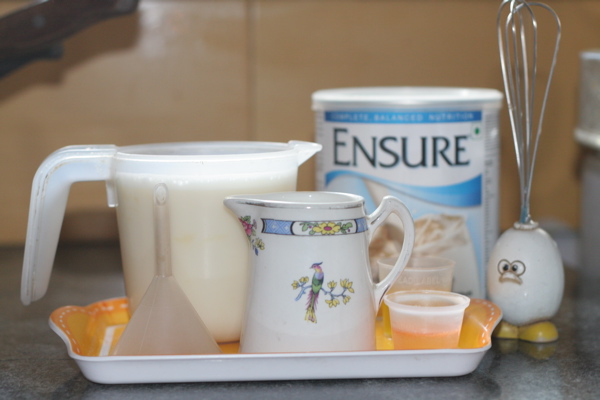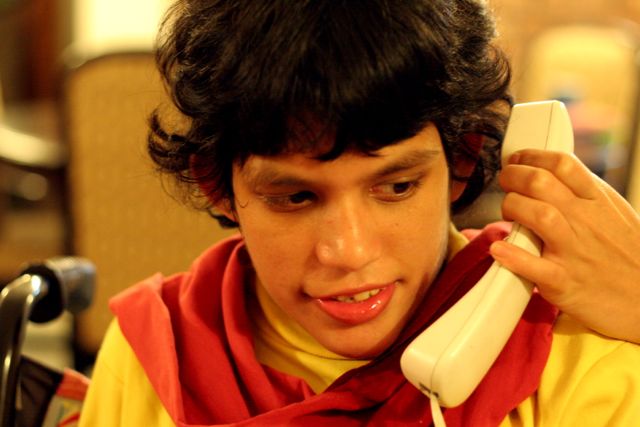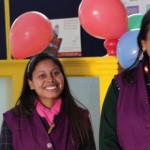The article below appeared in Commonweal – a magazine in New York for which I am a regular columnist.
It’s a strange time for people with disabilities. Among the general public in most developed countries, there is more knowledge, awareness, and acceptance of disability than ever before. Technological breakthroughs have transformed what were once disabling environments into enabling, supportive ones. New insights into how the human brain and body function have radically changed therapies, educational strategies, and the medical management of disability. The United Nations and the World Health Organization now see disability as a human-rights issue.
At the same time, and in those same developed countries, Richard Dawkins tweets that to knowingly give birth to a child with Down Syndrome is gravely immoral. Parents who get a false negative on an amniocentesis test can sue their doctor for wrongful birth and win. And, as demonstrated in a recent case in the United Kingdom, parents may legally kill a child with disability who is suffering severe and uncontrollable pain.
The case involved Nancy Fitzmaurice, a young British girl with severe developmental disabilities. Judging from all the evidence, she was doted on by her family; in photographs, from her infancy until shortly before her death, we see a happy, well-cared-for child. But complications from an operation at the age of twelve left her with intractable pain, which increased whenever she was fed.
She was admitted to London’s Great Ormond Street Hospital, an institution legendary for the quality of its pediatric palliative care program. When doctors there were unable to control Nancy’s pain, which her mother, Charlotte, described as “horrific, agonizing, and fearful,” they agreed to withhold food; the law did not allow them to withhold water. They told Nancy’s parents that it could take as long as four months for her to die—four months of what they expected to be unremitting pain. Charlotte then went to court to win the right to withhold all nourishment from her daughter, including water. She won the case. After two weeks of what must have been even more intense pain—starvation is a horrible way to die—Nancy passed away.
This happened in August, but the story did not break until early November—and then, initially, only in the tabloid press. The spin was remarkably positive, albeit emotionally high-pitched, verging on the hysterical. Charlotte Fitzmaurice was practically beatified in every account I read—her devotion to her child and the sacrifices she had made for twelve long years were always the focus. I don’t doubt her devotion, but I did think it was an odd way to couch a story full of moral complexity and ambiguity.
Whatever the circumstances, however compelling the justifications, the fact remains that this is a story about a child killed by her own parents and doctors. It is difficult to imagine a similar story being written about a child who had been perfectly normal before the pain began. The parents say they made their decision because of the pain Nancy was suffering—and I believe it—but every story I’ve read focused not on the pain of Nancy’s last days but on her disability. According to the Daily Mirror, “Nancy was born blind with hydrocephalus, meningitis, and septicemia. It meant she could not walk, talk, eat, or drink. Her quality of life was so poor she needed twenty-four-hour hospital care and was fed, watered, and medicated by tube.”
This sort of hyperbolic language is typical of the press’s descriptions of Nancy’s life and it reflects the ignorance that many share about disability. Tube feeding, for example, is usually mystified and made to seem like a complex medical drama that can be managed safely only by nurses and doctors specially trained for the task. In fact, it’s a simple, effective intervention that an average ten-year-old can cope with (I know a bright seven-year-old who handles it with ease) and that can radically transform the life of a person who has difficulty swallowing. Once mastered, it fades into the background, much like any other kitchen miracle (making toast, preparing tea). For some reason, however, the press and the public prefer to keep disability strange and inaccessible; to make parents of disabled kids into saints—noble and long-suffering—and to accept and justify whatever actions those parents choose to take. Who can question a saint?
By that measure, Ravi and I are saints too. Moy Moy is twenty-five now, and we’ve been caring for her for almost half our lives. But, public opinion or press squawking to the contrary, that doesn’t make us the last word on what is best for her. Like anyone else, we sometimes lapse into self-interest and sheer exhaustion.
That is precisely the point at which we rely on everyone else to remind us why we are here and what this is all about. We need to hear again about all the amazing new ways the world has discovered for our daughter to be a part of it. We need to be reminded that she is fearfully, wonderfully made and that she is OK just as she is. And if she’s in pain, we need help to accept that we all suffer pain at times and that we get through it. We get through it with the help of a community—and only with that help.
And perhaps you need help to remember that “community” means YOU. We are all in this together. What parents of kids with disabilities really need is support, not beatification.
After my column was published, a reader wrote in with this response:
To the Editors:
I have been a reader of Commonweal for over fifty years and this was the first time that an article angered and upset me. I refer to the article “Don’t Beatify Us” by Jo McGowan in the December 5 Commonweal. The theme of the article is that families with disabled children need help from the community, which is true and necessary. The center of the article is Nancy Fitzmaurice, a British girl born with severe disabilities, who was raised for twelve years with much love by her family. Complications from an operation left her with severe and constant pain which the mother described as “horrific, agonizing, and fearful.” She was admitted to a London hospital noted for pediatric palliative care, but they were unable to relieve her pain. Nancy’s parents and the doctors chose the only moral and loving option: to end her life of suffering. Because withholding food, legal according to British law, would leave Nancy in agony for four more months, her mother received a court permission to withhold water, allowing Nancy to die in two weeks. What angered me was McGowan’s comment: “the fact remains that this is a story about a child killed by her own parents and doctors.” What an insensitive remark! Notice the “own” for emphasis..
I am surprised and saddened that the editors would print such a remark. How do you think the parents, who did what was loving and moral for their daughter, would feel when publically accused of killing their daughter?
I can understand this response. But I think the writer misses my point. Here is my response, which Commonweal will publish along with his letter:
As the mother of a young woman with a severe disability, I appreciate Mr Frazier’s concern for Nancy’s parents. The last thing I want is to add to their anguish.
I disagree, however, that ending Nancy’s life was “the only moral and loving option” they had. The point of my article was that sympathy for parents (not only Nancy’s) clouds our judgement. Unfortunately, no amount of linguistic sensitivity can disguise either what happened to their child or the role they played in it.
Disability and intractable pain bring us into the most complex moral geography anyone can imagine; when it involves a child who cannot make decisions for herself the complexity only deepens.
There are many ways to think and talk about these things. Avoiding the reality of what is truly at stake should not be one of them. We need to be honest with ourselves and fully aware of the dangerous territory we are moving into with decisions like the one to starve Nancy Fitzmaurice to death.




